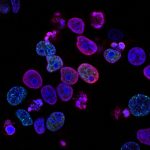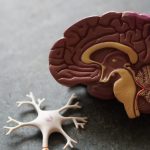brainstrust has long been affiliated to the National Cancer Research Institute (NCRI) as the patient/caregiver advocate on the Brain Group. It is a privilege – it means we can bring people living with a brain tumour closer to research, and research closer to people living with a brain tumour. The NCRI has undergone a restructure and during this time we were able to work with the Brain Group to identify key priorities and develop a strategy for the next five years.
What are the priorities? 
The key priorities have been identified, and are as follows:
- Produce and publish a position paper on the challenges faced in brain tumour research
- Develop a window of opportunity study, early-phase trial or basket study for glioblastoma patients
- Develop an innovative research trial to improve outcomes for brain tumour patients with unmet needs
- Improve outcomes for elderly or frail patients and patients with poor prognosis
- Build and strengthen links with international groups and prioritise opening up international studies for UK patients with rarer brain tumours
- Support and provide guidance for a broad range of research proposals across the brain cancer community.
We are working closely with the Brain Group, providing insights and reflections from the community about all of these priorities, and our specific focuses for this next quarter are with two working groups (WGs):
- To improve outcomes for elderly, frail patients or those with a poor prognosis
- To produce and publish a position paper on the challenges faced in brain tumour research.
Our role is to ensure that the patient and public voice is represented so that the work is relatable and meaningful for anyone who is living with a brain tumour.
What does this mean for people with lived experience?
The outcome for the group that is working on improving outcomes for the frail and elderly is to establish the role and outcome benefits of a comprehensive frailty assessment and pre-treatment interventions in ensuring patients receive the greatest benefit from treatment. This would include an additional focus on cognitive function as this will be unique to this tumour group. We also need to ensure that treatment is patient-specific to achieve the best outcomes for individuals with frailty.
WG2 has a more targeted outcome. The past position paper was written in 2017, so it is time for an update. The paper will establish a baseline so everyone who works in brain cancer research understands what the challenges are so that we can begin to develop solutions. It is a complex playing field, with so many different parts. This will help to reduce fragmentation of the clinical research world.
Want to receive all the latest research straight to your inbox?
Sign-up our curated, jargon-free weekly research newsletter. Click here to fill out our contact form and select ‘research’ to opt into our research newsletter.
Get involved with research…
If you would like to use your experience and insight to support clinical research, consider signing up to be a PRIME advocate for brainstrust.
If you or someone you love is living with a brain tumour and have any questions around this latest news, or want to access support, give us a call on 01983 292 405 or email hello@brainstrust.org.uk. You can also visit our little brainstrust website which features support for children affected by brain tumour.









